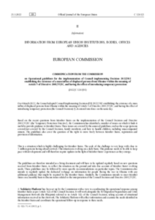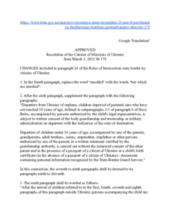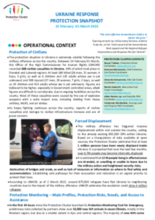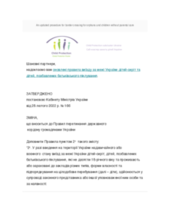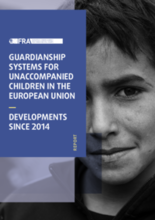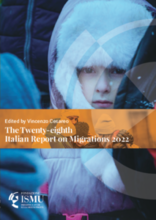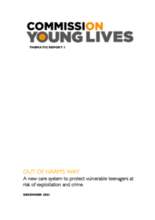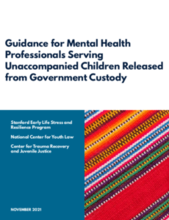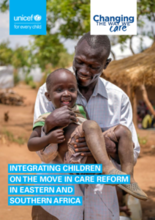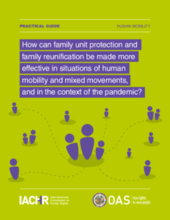Displaying 121 - 130 of 838
Communication from the Commission on Operational guidelines for the implementation of Council implementing Decision 2022/382 establishing the existence of a mass influx of displaced persons from Ukraine within the meaning of Article 5 of Directive 2001/55/EC, and having the effect of introducing temporary protection 2022/C 126 I/01.
The Cabinet of Ministers of Ukraine introduced a modification of item 24 of "Rules of crossing of the state border by citizens of Ukraine". This is an unofficial English Google Translation of the original document published in Ukrainian which is included on Page 2 of this document.
The Protection Cluster coordinates the protection response and advocates for the improvement of policies and legislation affecting conflict-affected people. It also engages in capacity building and provides guidance on mainstreaming protection into all humanitarian response activities. This is the protection snapshot for Ukraine for the period February 25 - March 1, 2022, compiled by Protection Cluster Ukraine.
The Government of Ukraine released this updated procedure for border crossing for orphans and children without parental care.
The report shows that, overall, although legislative changes have taken place in many Member States, national guardianship systems continue to face many challenges. The guardianship systems also still vary greatly across the EU.
In this essay, after providing some data regarding Ukrainian families and minors who fled their country after the Russian invasion and moved to Italy, the authors will focus on the extraordinary effort made to improve reception programs, on the peculiar condition of minors who reached our country accompanied by adults who were not their parents, and finally on the experience of placing these fleeing families into Italian households.
This report highlights the changing characteristics of children in and on the ‘edge of care’, including unaccompanied minors, increasing numbers of young people with unmet complex needs and BAME young people.
Providing effective mental health services to unaccompanied children released from federal immigration custody is both critically important and incredibly challenging. Developed by children’s rights attorneys and mental health experts on trauma and immigration, this Guide is grounded in the voices and experiences of unaccompanied children.
This short paper examines why children on the move need to be included in care reform in the region, how the care needs of these boys and girls can be met, and what lessons can be learned from the care of children on the move to inform the care of children more broadly.
The guide recommends a series of measures aimed at States, which focus on protecting family unity, preventing separation, and ensuring reunification in the context of human mobility, including for unaccompanied or separated children and adolescents, who require international protection or who leave their homes in search of better opportunities or family reunification.

